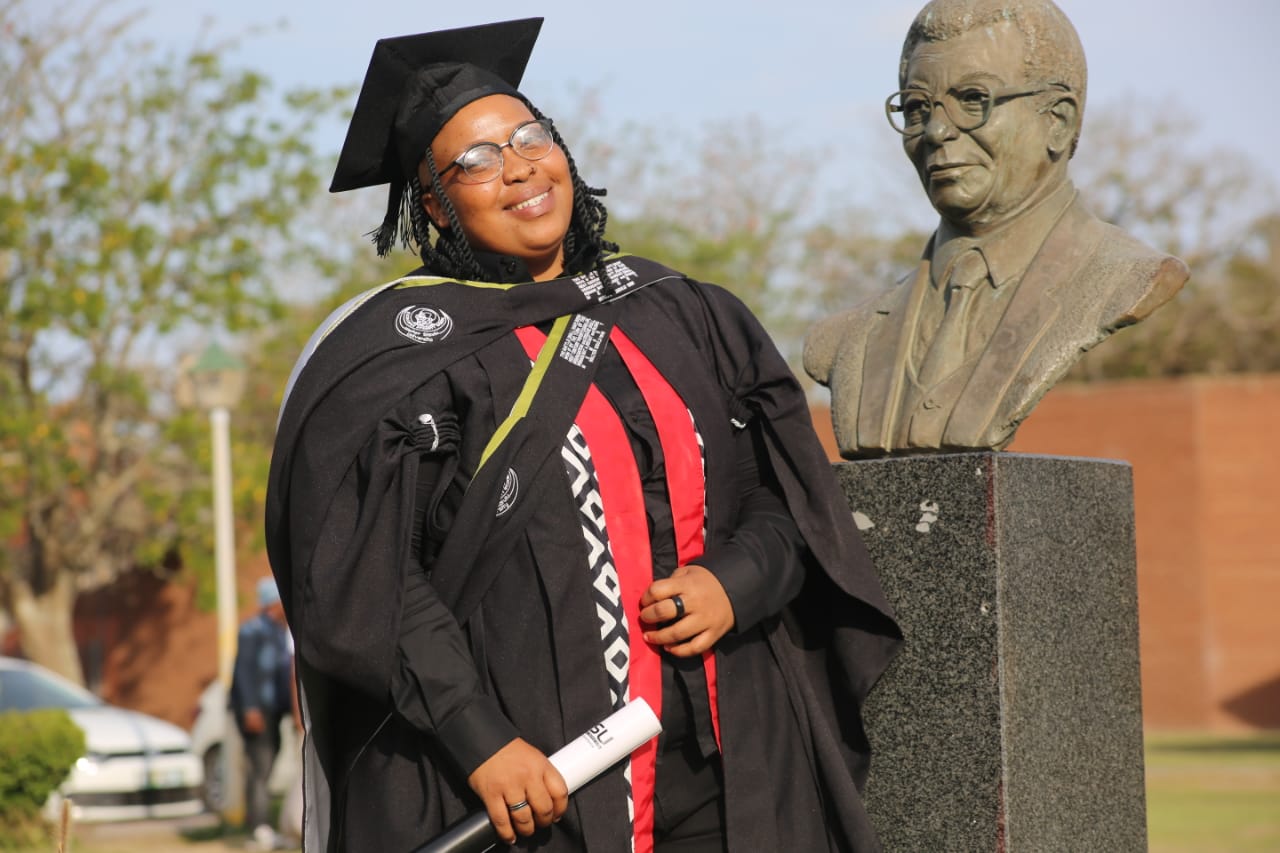WSU LECTURER CALLS FOR AN ENHANCED DEAF-INCLUSIVE PROGRAMME

A passionate advocate for deaf rights and WSU part-time junior lecturer, Nasiphi Phaliso, calls on the institution to take a step towards inclusivity by recognising local sign language dialects and creating academic programmes that accommodate deaf students.
The Computer Literacy lecturer expressed her deep appreciation for WSU’s progress in supporting students with disabilities, particularly through the university's Disability Unit.
"WSU has made commendable progress in recognising the needs of students with disabilities, and the work of the Disability Unit is a testament to that. The introduction of sign language interpreters during graduation ceremonies is a clear indication of the university’s commitment to inclusivity,” said Phaliso.
However, she added that there is more that the university can do to ensure that deaf students are not only accommodated, but also empowered through the recognition of local sign language dialects.
“WSU has an opportunity to lead the way in higher education by recognising sign language and tailoring its programmes to support deaf students more effectively. This would be a monumental step forward in ensuring that deaf students feel understood and included in the academic community," said Phaliso.
Phaliso has been a freelance South African Sign Language (SASL) interpreter since 2012. Sign language is her home language as both her parents are deaf.
“WSU has an opportunity to integrate advanced technology, such as computers with assistive programmes, to better support Deaf students. Since exam papers are not in SASL, they could be interpreted for students to understand. Providing electronic question papers with built-in interpretation would streamline the process and reduce confusion, especially during exams,” said Phaliso.
Phaliso is actively engaged in advocating for Deaf awareness and inclusivity programmes and has been working to create awareness around the Deaf community and pushing for more inclusive initiatives in the university.
“I am currently planning to approach the Transformation Office to establish a collaboration with the office on how we can work together to achieve initiative. As a South African Sign Language activist I am willing to help in any way to see the deaf community included,” said Phaliso.
The Transformation and Language Directorate is responsible amongst other things for formulating Institutional policies and implement plans related to Transformation, Languages, Diversity Inclusion and Equity (disability and Gender) and to realign existing policies to the WSU transformation agenda.
By Anita Roji
